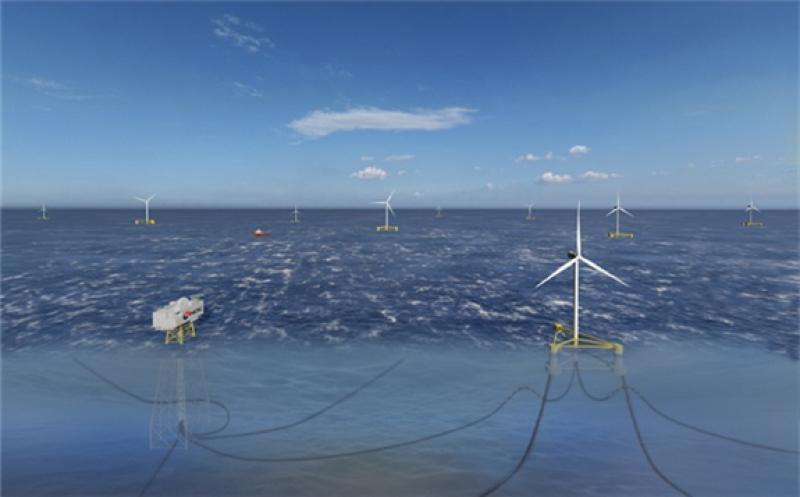The provincial government of Jeju Island is driving forward with plans to commercialize floating-type offshore wind power systems and existing gas stations into electric car charging stations.
 This image provided by the Korea National Oil Corp. shows a floating offshore wind farm to be built in the East Sea off the coast of Ulsan, 414 kilometers southeast of Seoul.
This image provided by the Korea National Oil Corp. shows a floating offshore wind farm to be built in the East Sea off the coast of Ulsan, 414 kilometers southeast of Seoul.
The municipal government recently announced that it was finally selected for the Ministry of Trade, Industry and Energy’s Floating Offshore Wind Power System Development Project and the Ministry of Land, Infrastructure and Transport’s Smart Challenge Project.
Starting from 2022, the municipal government plans to produce floating-type offshore wind turbines at the wave-power generation plant that has been run by the Korea Research Institute of Ships & Ocean Engineering.
After one year of testing, it intends to create a commercial wind power generation complex by the second half of 2025.
The complex is expected to produce up to 8 megawatts of offshore wind power, creating earnings of about 2 billion won (US$1.76 million) per year through the sale of the power.
Most floating-type offshore wind power generators are located in remote sea areas, thereby causing less noise damage and causing less harm to the marine environment compared to other types of wind power generators.
The former, accordingly, can reduce damages to fishermen and marine fish farms.
In addition, the municipal government also plans to carry out a ‘smart challenge project’ in which it will use the new recyclable energy it creates through offshore wind power for future mobility, including electric cars.
To promote this project, it plans to invest a total of 22 billion won over the next two years.
The provincial government will create a smart city by transforming the neighborhood of the Jeju International Airport and conventional gas stations and convenience stores into new recyclable energy charging and storage stations and drone landing areas.